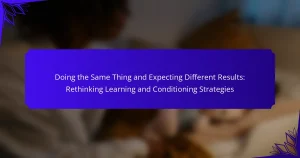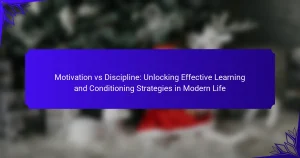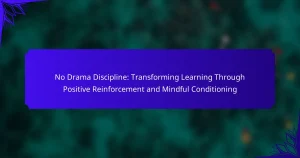Self-help books for women provide valuable strategies for empowerment, mindfulness, and personal growth. They focus on building self-confidence, fostering resilience, and enhancing emotional intelligence. These resources often include practical exercises to promote self-reflection and encourage the establishment of supportive relationships. By addressing women’s unique experiences, these books guide readers toward achieving their personal and professional goals.

What are the key themes in self-help books for women?
Self-help books for women often focus on empowerment, mindfulness, and personal growth strategies. Key themes include building self-confidence, fostering resilience, and developing emotional intelligence. Additionally, these books emphasize the importance of setting boundaries and cultivating supportive relationships. Many titles incorporate practical exercises to enhance mindfulness and promote self-reflection, ultimately guiding women toward achieving their personal and professional goals.
How do empowerment strategies differ in popular titles?
Empowerment strategies in self-help books for women vary significantly, focusing on different aspects of personal growth. Popular titles often emphasize mindfulness, emotional intelligence, and practical goal-setting.
For instance, some books prioritize mindfulness techniques to enhance self-awareness, while others may concentrate on actionable steps for achieving personal goals. A unique attribute found in many successful titles is the incorporation of community support, fostering connections among readers for shared growth experiences.
Additionally, rare strategies include the integration of creative expression as a tool for empowerment, enabling women to explore their identities and aspirations. These diverse approaches cater to varied reader needs, ensuring a broad spectrum of empowerment methods is available.
Which mindfulness techniques are commonly emphasized?
Common mindfulness techniques include meditation, deep breathing, and body scanning. These practices enhance self-awareness and promote emotional regulation. Meditation often focuses on breath awareness, while deep breathing techniques can reduce stress levels. Body scanning helps individuals connect with their physical sensations, fostering a sense of presence. Regular practice of these techniques can lead to significant improvements in mental health and overall well-being.
What personal growth strategies are frequently discussed?
Self-help books for women often discuss strategies like goal setting, mindfulness practices, and self-reflection. These approaches empower individuals to enhance personal growth. Popular techniques include journaling, meditation, and positive affirmations. Such strategies foster resilience and emotional intelligence, essential for overcoming challenges.

What universal benefits do self-help books offer?
Self-help books offer universal benefits like empowerment, mindfulness, and personal growth strategies. They provide actionable insights that foster self-awareness and resilience. Readers gain tools for overcoming challenges, enhancing emotional intelligence, and building confidence. These resources often include practical exercises that encourage reflection, leading to transformative change. The unique attribute of self-help books is their ability to cater specifically to women, addressing their distinct experiences and needs in personal development.
How can self-help books enhance self-awareness?
Self-help books can significantly enhance self-awareness by providing insights and strategies for personal reflection. They often include exercises that prompt readers to examine their thoughts, emotions, and behaviors. This process fosters a deeper understanding of oneself, leading to improved mindfulness and empowerment. Research indicates that engaging with self-help literature can increase emotional intelligence, a unique attribute linked to self-awareness. By exploring various perspectives and experiences, readers can identify their values and motivations, ultimately promoting personal growth.
What role do they play in building resilience?
Self-help books for women play a crucial role in building resilience by providing strategies for empowerment and personal growth. These books offer practical tools that enhance mindfulness, helping women navigate challenges effectively. For instance, they often include exercises that foster emotional intelligence, enabling readers to respond to setbacks with strength. Additionally, the narratives shared in these books can inspire a sense of community and shared experience, reinforcing the belief that overcoming obstacles is possible. Ultimately, self-help books serve as valuable resources that cultivate resilience through knowledge and support.
How do they foster community among women?
Self-help books for women foster community by creating shared experiences and encouraging dialogue. They provide relatable narratives that resonate with women’s challenges, promoting connection through personal stories. Many books include discussion questions, facilitating group conversations and empowering women to support one another. This approach builds a sense of belonging and collective growth. Additionally, engaging with online platforms related to these books enhances community interaction, allowing women to share insights and foster relationships.

What unique attributes set specific self-help books apart?
Unique attributes that set specific self-help books for women apart include their focus on empowerment, tailored mindfulness practices, and strategies for personal growth. These books often incorporate relatable narratives and diverse perspectives that resonate deeply with women’s experiences. Many emphasize community support and actionable exercises, fostering a sense of connection and practical application. Additionally, they may include unique attributes such as intersectional approaches that address various identities and experiences, enhancing their relevance and impact.
How do cultural perspectives influence content?
Cultural perspectives shape content by influencing themes and values in self-help books for women. These books often reflect diverse cultural backgrounds, impacting empowerment strategies and mindfulness practices. For example, Western perspectives may emphasize individualism, while Eastern views may focus on community and harmony. This cultural diversity enriches personal growth strategies, making them more relatable and effective for various audiences. Understanding these influences helps authors address the unique needs of women across different cultures, enhancing the relevance and impact of their messages.
What innovative formats are emerging in this genre?
Innovative formats in self-help books for women include interactive workbooks, audio-guided experiences, and digital platforms. These formats enhance engagement and accessibility. For instance, interactive workbooks allow readers to actively participate in their personal growth journey. Audio-guided experiences provide a convenient way to consume content while multitasking. Digital platforms offer community support and real-time feedback, fostering connection among readers. These emerging formats align with the unique attribute of adaptability, catering to diverse learning styles and lifestyles.

What are some rare yet impactful insights found in select titles?
Some rare insights from self-help books for women focus on unique empowerment strategies, such as the concept of “feminine energy” highlighted in “The Power of Woman.” This book emphasizes the importance of intuition and emotional intelligence in personal growth. Another impactful insight is the “sisterhood effect” discussed in “Women Who Run with the Wolves,” which illustrates how shared experiences among women can foster resilience and strength. Additionally, “Untamed” introduces the idea of self-discovery through breaking societal norms, encouraging women to embrace their true selves. These insights offer transformative perspectives that resonate deeply with personal empowerment and mindfulness.
Which authors challenge conventional wisdom?
Several authors challenge conventional wisdom in self-help literature, focusing on empowerment and personal growth for women. Notable figures include Brené Brown, who emphasizes vulnerability as a strength, and Elizabeth Gilbert, who promotes the importance of creativity in personal development. Their unique perspectives encourage women to redefine success and embrace authenticity, often contrasting traditional expectations. Other influential voices are Tara Mohr, who advocates for women’s leadership, and Michelle Obama, whose memoir inspires resilience and self-acceptance. These authors collectively push boundaries, encouraging women to question societal norms and pursue their true selves.
What unique narratives resonate with readers?
Self-help books for women resonate through unique narratives that emphasize empowerment, mindfulness, and personal growth. These narratives often highlight personal stories of overcoming adversity, fostering resilience, and cultivating self-love. Readers connect with themes of transformation and authenticity, as they seek relatable experiences that inspire change. Additionally, practical strategies and actionable advice enhance the appeal, making the content not only engaging but also applicable in daily life.
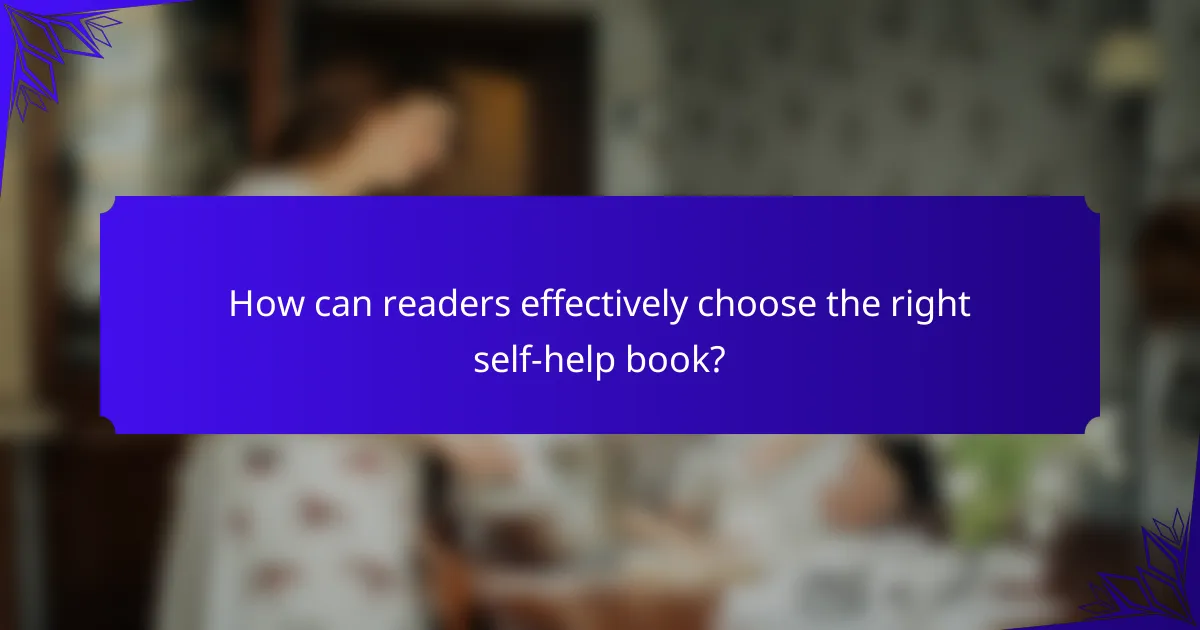
How can readers effectively choose the right self-help book?
To effectively choose the right self-help book, readers should focus on their specific needs and goals. Identify the core topics that resonate, such as empowerment, mindfulness, or personal growth strategies. Explore reviews and recommendations to assess the book’s impact and relevance. Consider the author’s background and expertise in the subject. Look for unique attributes, like practical exercises or relatable anecdotes, that enhance the reading experience.
What criteria should be considered for selection?
When selecting self-help books for women, consider the author’s credentials, the relevance of topics to empowerment and mindfulness, and reader reviews. Focus on books that provide actionable strategies, relatable narratives, and diverse perspectives to enhance personal growth. Look for unique attributes such as practical exercises and community engagement opportunities.
How important is the author’s background?
The author’s background is crucial in self-help books for women, influencing credibility and relatability. An author’s experiences shape their insights, making them more authentic. For instance, an author with a history of overcoming adversity may offer unique empowerment strategies. Readers often seek guidance from those who have successfully navigated similar challenges. This connection enhances the book’s impact on mindfulness and personal growth.
What role does reader feedback play?
Reader feedback plays a crucial role in shaping self-help books for women, enhancing empowerment and personal growth strategies. It provides authors with insights into the effectiveness of their content, allowing for improvements in clarity and relevance. Positive feedback can validate approaches, while constructive criticism helps refine techniques. Engaging with readers fosters a community around shared experiences, which can deepen the impact of mindfulness practices. Ultimately, feedback ensures that the books remain aligned with the evolving needs of women seeking personal growth.
What common mistakes should be avoided when selecting books?
To avoid common mistakes when selecting self-help books for women, focus on quality over quantity. Prioritize books that offer practical empowerment strategies and mindfulness techniques.
Many readers overlook the importance of author credibility. Ensure the author has expertise in personal growth, as this enhances the book’s reliability.
Another mistake is ignoring reviews and recommendations. Seek insights from other women who have benefited from the book to gauge its effectiveness.
Finally, avoid selecting books based solely on trends. Choose titles that resonate with your personal growth journey and align with your values for meaningful impact.
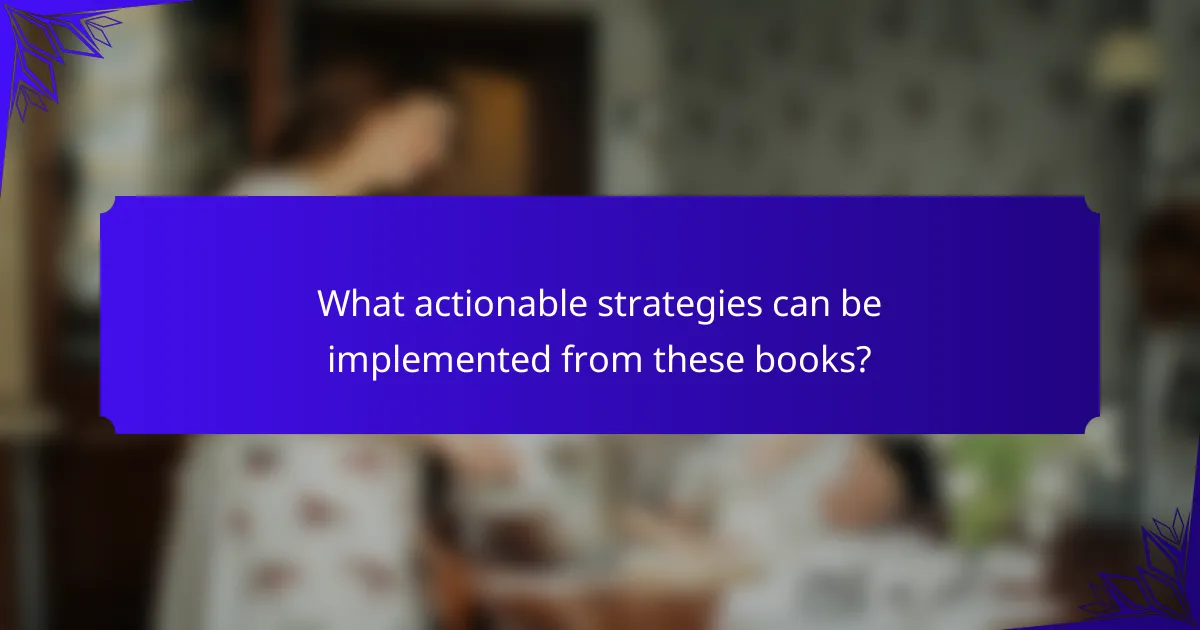
What actionable strategies can be implemented from these books?
Self-help books for women provide actionable strategies that enhance empowerment, mindfulness, and personal growth. Key strategies include setting clear goals, practicing daily mindfulness, and fostering supportive relationships.
1. Set SMART goals to create a clear path for personal development.
2. Incorporate mindfulness techniques, such as meditation or journaling, to enhance self-awareness.
3. Build a support network of like-minded individuals to encourage growth and accountability.
4. Engage in continuous learning through workshops or online courses to deepen knowledge and skills.
5. Practice self-compassion to cultivate resilience and a positive mindset.
6. Regularly reflect on progress to adjust strategies and celebrate achievements.
How can readers create a personalized reading plan?
To create a personalized reading plan, identify your goals and interests in self-help. Select books that focus on empowerment, mindfulness, and personal growth strategies. Schedule regular reading times, aiming for consistency. Track your progress and reflect on insights gained. Adjust your plan based on what resonates most with you.
What practices can enhance the application of learned concepts?
Reading self-help books can enhance the application of learned concepts through practical exercises and consistent reflection. Engage in daily journaling to reinforce insights gained from the texts. Create actionable goals based on the strategies outlined, ensuring they align with personal values. Join discussion groups or workshops to share experiences and gain diverse perspectives. Regularly revisit key concepts to deepen understanding and integration into daily life.
How can accountability partners facilitate growth?
Accountability partners can significantly enhance personal growth by providing support and motivation. They help individuals set clear goals, maintain focus, and foster a sense of responsibility. This partnership encourages regular check-ins, which can lead to increased mindfulness and empowerment. Studies show that individuals with accountability partners are more likely to achieve their personal development objectives.
What are the best practices for integrating insights into daily life?
To effectively integrate insights from self-help books into daily life, prioritise practical application. Start by identifying key concepts that resonate with you, such as empowerment and mindfulness. Create a daily routine that includes time for reflection and practice. For example, set aside moments for journaling or meditation to reinforce these insights. Consistently revisit the material to deepen understanding and adapt strategies to your evolving needs. Engaging with a supportive community can also enhance accountability and motivation, fostering personal growth.
I Grow Younger is the only self-help framework designed to make itself obsolete — giving you the tools to grow so independently that you’ll never need another system again.
